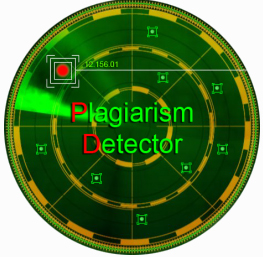Online Submissions
Already have a Username/Password for Jurnal Ilmiah Sistem Informasi Akuntansi?
Go to Login
Need a Username/Password?
Go to Registration
Registration and login are required to submit items online and to check the status of current submissions.
Author Guidelines
Carefully read the submission guidelines as follows:
A. General Author Guidelines
- The Manuscript should be written in Indonesian or English and have never been published or is not in the process of submission for publication to other media and does not contain elements of plagiarism.
- The Manuscript may take the form of research, case studies, or literary studies.
- The author should register as an Author. The guides to register and submit the paper is at the bottom.
- The Manuscript will be published in Jurnal Ilmiah Sistem Informasi Akuntansi after being reviewed by peer reviewers.
- The length of submitted paper is at least 6 pages and no more than 12 pages.
- The Manuscript should be prepared according to the following author guidelines and Template. The writing template can be downloaded on this journal.
B. Structure of the manuscripts
- Title. The title should be short, clear, and informative, but does not exceed 14 words. It has to be pinpoint with the issues that will be discussed. The article title does not contain any uncommon abbreviation. The main ideas should be written first and followed then by its explanations.
- Author’s names and institutions. The author's names should be accompanied by the author's institutions, institutions address, and email addresses, without any academic titles and/or job title.
- Abstract. Abstracts are written in Indonesian. Abstract is made in one paragraph which consists of the background, objective, research methods, results, conclusions and keywords (3-5 phrases) and no more than 200 word.
- Introduction. The introduction must contain (shortly and consecutively) a general background and a literature review (state of the art), main research problems and research method. In the final part of the introduction, the purpose of the article writing should be stated.
- Result and Discussion. This part consists of the research results and how they are discussed. The results obtained from the research have to be supported by sufficient data. The research results and the discovery must be the answers, or the research hypothesis stated previously in the introduction part. The following components should be covered in discussion: How do your results relate to the original question or objectives outlined in the Introduction section (what/how)? Do you provide interpretation scientifically for each of your results or findings presented (why)? Are your results consistent with what other investigators have reported (what else)? Or are there any differences?
- Conclusions. Conclusions should answer the objectives of the research and the research discoveries. The conclusions should not contain only the repetition of the results and discussions or abstract. You should also suggest future research and/or point out those that are underway.
- References. The literature listed in the References contains only the sources referenced or included in the article. Please use Reference Manager Applications like EndNote, Mendeley, Zotero, etc. Referral sources should contain 80% of journal articles, proceedings, or research results from the last five years. Writing techniques bibliography, using the system cites IEEE Style.
Copyright Notice
Authors who publish with this journal agree to the following terms:
- Authors retain the copyright and publishing right, and grant the journal right of first publication with the work simultaneously licensed under a Creative Commons Attribution License (CC BY-SA 4.0) that allows others to share the work with an acknowledgement of the work's authorship and initial publication in this journal.
- Authors are able to enter into separate, additional contractual arrangements for the non-exclusive distribution of the journal's published version of the work (e.g., post it to an institutional repository or publish it in a book), with an acknowledgement of its initial publication in this journal.
- Authors are permitted and encouraged to post their work online (e.g., in institutional repositories or on their website) following the publication of the article, as it can lead to productive exchanges, as well as earlier and greater citation of published work (See The Effect of Open Access)
Privacy Statement
The names and email addresses entered in this journal site will be used exclusively for the stated purposes of this journal and will not be made available for any other purpose or to any other party.














